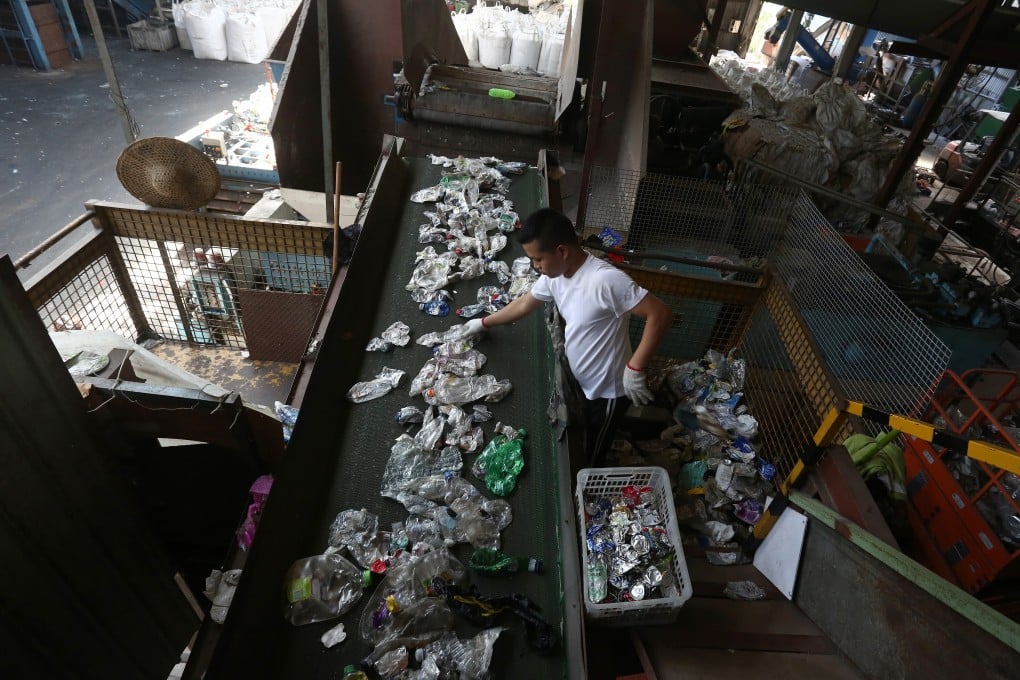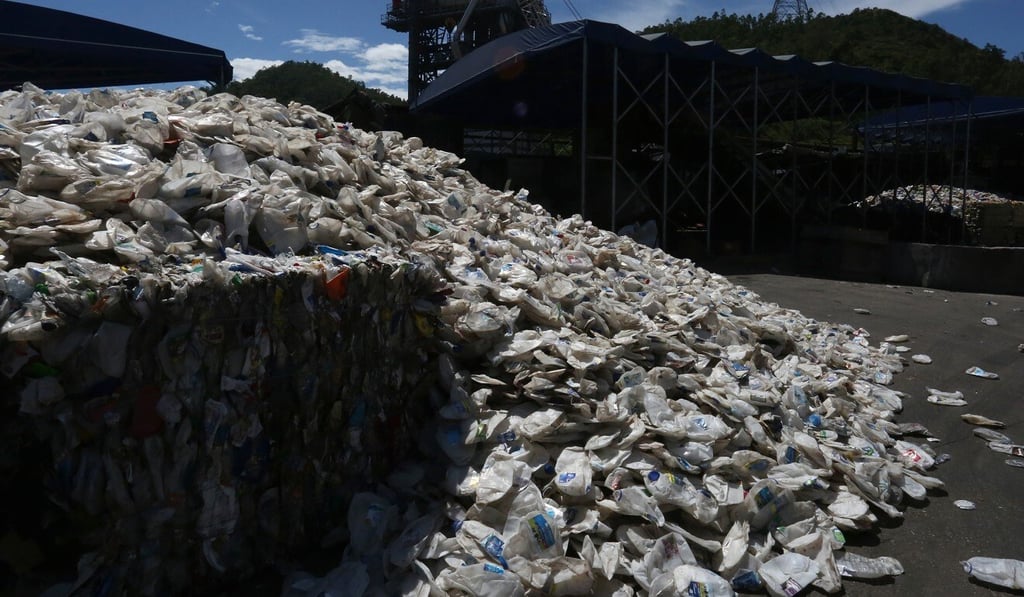Shrinking market, poor collection services have Hong Kong’s plastic recyclers struggling to stay afloat — and few are succeeding
- As virgin plastic prices sink, Chinese firms have little incentive to opt for recycled version, insiders say, estimating nine in 10 local firms have closed
- With no effective management plan in place, many buildings simply send contents of recycling bins straight to the landfill

Up to 90 per cent of Hong Kong’s small and medium plastic recyclers have closed their doors this year amid shrinking demand for their product, according to industry representatives, who are calling on the government to set up a better collection system for the city’s discarded plastic.
Last October, the cost of virgin plastic became cheaper than its recycled counterpart by US$72 (HK$558) per tonne for the first time, following a historic drop in the price of oil, which is refined into the petrochemicals that make the synthetic material. That price disparity could continue into the foreseeable future, analysts say.

Hong Kong’s recyclers, who rely on imported waste plastic to boost their production, said the cost of importing plastic now far exceeds the price they can get for their product in China – their only market – which has no rules requiring manufacturers to reuse plastics.
“Nowadays, we can’t even recover the processing cost of up to HK$3,000 (US$387) per tonne of plastic,” said Wong Chor-ming, director of a small plastic recycling firm in Yuen Long. “And then the Covid-19 pandemic has made things worse.”
Hong Kong’s recyclers have long faced operational hurdles, and a slowdown in manufacturing exacerbated by the coronavirus pandemic has only compounded their troubles.